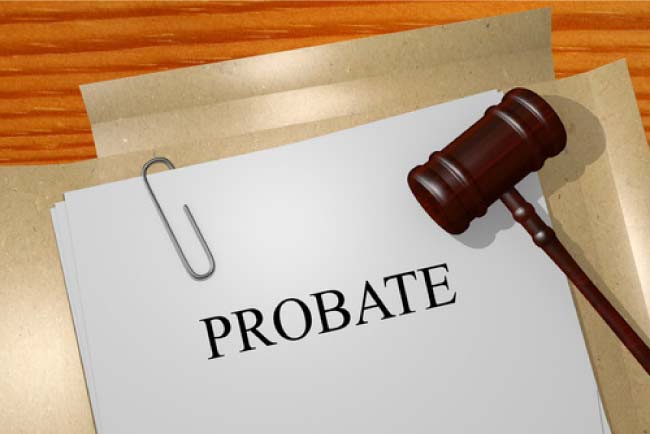Did you know that less than fifty percent of adults in the UK have a will?
It’s true. Meaning millions of people out there have no plan in place for what happens to their estate after they’re gone. Of course, it’s not something we really like to think about. But, with no guarantees in life, it’s always better to be prepared.
But what happens if someone dies without a will? The process is far from elementary.

In the UK, when a person dies, their death needs to be registered. Once this happens, their bank, insurance companies, pension provider, credit card providers and any other relevant financial institutions will need to be informed. You’ll also need to tell their mortgage provider, local authority, housing association or landlord, depending on their living situation, utility companies, relevant agencies such as HMRC or benefits service. The list goes on.
Then, their estate will need to be dealt with. If they have a will, they will typically have appointed someone to handle their estate, through a process known as probate.
So, what if there is no will?

This is where it becomes more complicated. Someone must apply to the court to be put in charge of the estate (only specific people are allowed by law). Hiring a probate solicitor is strongly advised here, as the process can be quite complex. In the UK, the ‘rules of intestacy’ govern who is eligible to apply, the first being the living spouse of the deceased, then their children, parents, siblings, etc. Unfortunately, if the person was not married or in a civil partnership at the time of their passing, their surviving partner is ineligible.
What happens to their possessions?
Whereas, if you have a will, you can choose exactly how you want your property, assets and belongings divided up, without one, the division of the estate will follow certain specified provisions. This depends partly on your marital status and the total value of your possessions.
For those who are married or in a civil partnership, their living spouse will inherit the full estate. However, if the value of the estate is over £250,000, they will inherit any personal belongings and a total of £250,000, with the remainder of the estate split 50/50 between the spouse and their children (or their children’s children if they have also passed away), unless they had no children, in which case everything goes to the spouse. Common law marriages do not count as being eligible for inheritance, so unmarried partners are at risk of being left with nothing. Additionally, step children are not covered under the rules, so they too can end up left out of any inheritance.
For those who are not married at the time of their death, the estate will be split equally among their children (or their children’s children). If they have no children, everything will go to their parents. If they have no living parents, it will go to their siblings, followed by grandparents, aunts and uncles,etc.
Applying for probate
The person applying for control of the deceased’s estate must submit a probate application and inheritance tax form, as well as the person’s death certificate, to the local probate office and pay a fee. Some, or all of the inheritance tax owed will need to be paid before the person can be granted probate.
Once the application is approved, the person will receive a grant of letters of administration, which can then be sent to banks, pension providers, etc. to acquire the deceased’s assets. The person will then need to pay off any debts owed by the deceased, before dividing up whatever is left in the manner required by the rules of intestacy.
So, you can see that if your family is ‘non-traditional’ or maybe the people you see as ‘family’ aren’t related to you at all, you need a will if you want them to be provided for after you go. The rules are rigid, and they can’t be challenged.
But, it is possible for someone who feels they have been unjustly left out to claim under the Inheritance (Provision for Family and Dependants) Act 1975. So, for unmarried partners, step children, etc. this is a possible route to go down. Alternatively, beneficiaries can apply to alter how the estate is apportioned, if they all agree on it.
However, if you really want to ensure the people you care about are provided for, having a written will is a guarantee that they will be. Don’t risk them missing out.
